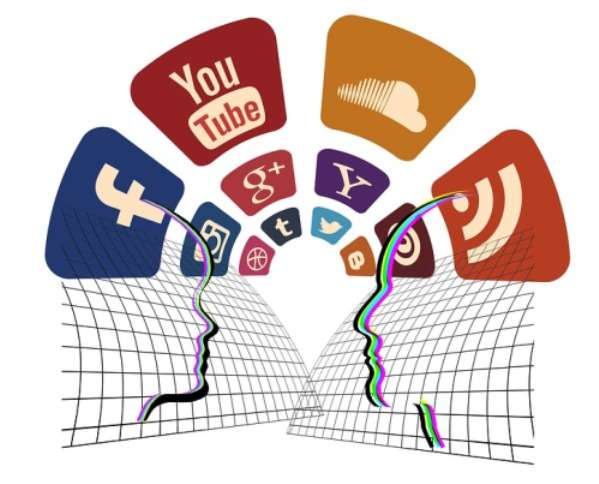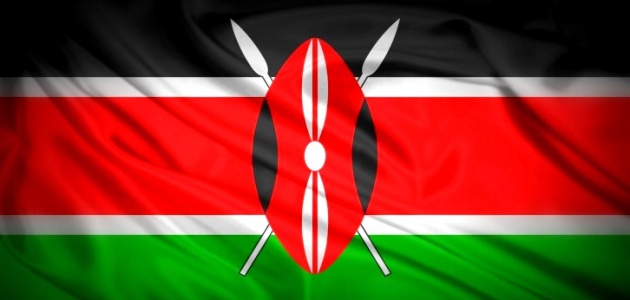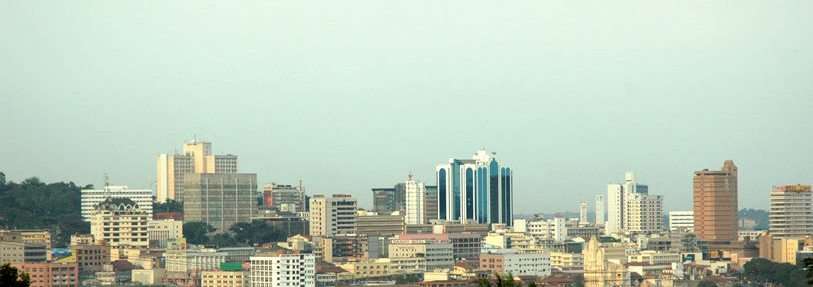By Juliet Nanfuka |
Tanzania appears to be steadily sliding into a predator of critical social media users, as state authorities continue to arrest and prosecute users for expressing what many see as legitimate opinions. In recent months, the country’s newly elected government has used a controversial new law to prosecute at least seven social media users, in spite of constitutional guarantees of free speech.
Tanzanian netizens are falling foul of the Cybercrimes Act enacted last year, whose stated goal is “criminalizing offences related to computer systems and Information Communication Technologies”. The law has been used to charge citizens for “publication of false information” in accordance with Section 16 of the Act. It states: “Any person who publishes information or data, presented in a picture, text, symbol or any other form in a computer system knowing that such information or data is false, deceptive, misleading or inaccurate and with intent to defame, threaten, abuse, insult or otherwise deceive or mislead the public or councelling the commission of an offence, commits an offence, and shall on conviction be liable to a fine not less than five million shillings or to imprisonment for a term not less than three years or to both.“
On April 15, 2016 Isaac Habakuk Emily was appeared in court for the publication of false information using a computer system – in this instance Facebook. In a post, Emily referred to President Pombe Magufuli as an imbecile that could not be compared to the country’s founding leader, Julius Nyerere. He appeared in court for insulting the president after his post was reported to the Tanzania Communications Regulatory Authority (TCRA).
See report on State of Internet Freedom in Tanzania 2015
Since the Cybercrimes Act took effect last September, Tanzanian social media users have “gone a little quiet”, according to journalist Joseph Warungu. And for good reason, as Emily is not the first individual against whom the law has been used. In October 2015, Benedict Angelo Ngonyani was charged for “spreading misleading information” after he posted on Facebook that Tanzania’s Chief of Defence Forces, General Davis Mwamunyange, had been hospitalised following food poisoning. In the same month, Sospiter Jonas was charged for posting to Facebook content stating that Tanzanian Prime Minister Mizengo Pinda “will only become a gospel preacher.” The following month, four staff of an opposition party were charged for publishing “inaccurate” election results on Facebook and Twitter.
The stated objective of the Cybercrimes Act was to fight rising incidents of cybercrime such as bank fraud, mobile money theft, phishing attacks, website hacking and spoofing. However, even as it was being debated, human rights defenders warned that the government would use the law to suppress critical voices. As one activist stated, “We usually use various internet platforms to communicate our information—Twitter, Facebook, blogs, SMS, WhatsApp, etc. The use of all these forms will be rendered useless by the Act which in part criminalises transmission of any information deemed misleading, defamatory, false or inaccurate by the government.”
The Cybercrimes Act was reportedly passed in the middle of the night and has been criticised for disregarding press freedom and freedom of expression, granting excessive powers to police, and offering limited protections to ordinary citizens.
Clamping down on social media users is a trend that has been increasingly witnessed in East Africa and beyond. In Kenya, Section 29 of the Kenya Information and Communications Act (2013) has been used to charge up to 10 social media users for “the improper use of a telecommunication system” in 2016 alone. In Uganda, Section 25 of the Computer Misuse Act bears similar language and states, “Any person who willfully and repeatedly uses electronic communication to disturb or attempts to disturb the peace, quiet or right of privacy of any person with no purpose of legitimate communication whether or not a conversation ensues commits a misdemeanor.” In the lead up to the February 2016 general elections, a series of arrest were made which saw social media users charged using this law.
Further afield, South Africa’s Cybercrimes and Cybersecurity Bill (2014) also bears similar vague clauses that muzzle opinion of the media, bloggers and other independent actors that promote freedom of expression and increased state transparency. In Nigeria, the Frivolous Petitions Bill (2015), popularly known as the Social Media Bill, threatens to muzzle public expression online.
The Cybercrimes Act is one of several laws Tanzania enacted in the lead up to the October 2015 general elections despite public outcry that these laws granted excessive powers to the police criminalised expression and access to information, and did not provide clear legal recourse to citizens.
As affronts to citizens’ online rights in Tanzania and other countries continue, self-censorship is likely to prevail which in turn would have a negative impact on citizen participation, transparency and accountability in governance.
NB: Section 16 of the Cybercrimes Act 2015 has been adjusted to reflect the fine of not less than five million shillings or to imprisonment for a term not less than three years or to both.
African Women's Safety Online in the Sustainable Development Goals Era
By Ashnah Kalemera |
On March 8, the world will commemorate International Women’s Day under the theme “Planet 50-50 by 2030: Step it up for Gender Equality”. According to the United Nations, the theme is a reflection of the Sustainable Development Goals related to gender equality and empowerment of all girls and women. However, affronts to women’s rights over the years have leaped from the offline into the online arena.
An estimated one third of all women worldwide experience physical or sexual violence in their lifetime – mostly by an intimate partner. According to a 2015 report, the proliferation of Information and Communication Technology (ICT) tools such as mobile phones and social media platforms are fuelling digitally enabled violence against women (VAW). In particular, the ICT tools which are easily accessible facilitate abuse through enabling anonymity of the perpetrators who could be located anywhere and without physical contact with the victim.
In Europe, one in 10 women have been victims of cyber harassment, including having received unwanted, offensive sexually explicit emails or SMS messages, or unwarranted inappropriate advances on social networking sites.
In Africa, the extent of online VAW remains unknown, mostly due to inhibitions including a culture of silence, and lower levels of access to the internet and related technologies. However, cases of revenge pornography, cyber stalking and cyber bullying are becoming rampant. In many instances, these cases go unreported and victims have limited legal recourse or resources to seek justice.
See for instance: Kenyan teenager commits suicide after a man she met through Facebook threatened to publish her nude photos; Online VAW victims in Uganda further subjected to threats of prosecution; and Blogging against an ex partner in the Democratic Republic of Congo.
During the 2015 Women’s Day Celebrations, there were calls for greater protections for women’s rights both online and offline. But many women remain uninformed of their rights online and are also unaware of the tools available to secure their online communications and information.
In commemoration of Safer Internet Day, popular social media service Facebook launched the first in a series of global roundtables to promote women’s safety online. Participants at the roundtable, which was held in Nairobi, Kenya, called for more research into the online VAW phenomenon in Africa and advocacy for laws which specifically address the vice. “Influencing policy on online violence against women requires evidence. Not only research but experiences,” noted one participant.
The availability of support mechanisms for victims was also emphasised with participants noting that offensive content takedowns “are not enough” and different kinds of responses were required depending on context. “First line responses need more capacity and awareness around technology. This should trickle down from intermediaries and service providers to law enforcement,” said another participant.
Meanwhile, consensus around definitions of the crimes including across diverse languages and colloquialisms must be agreed to inform advocacy and activism. It was recognised that online VAW is not “a new form” of violence against women, with participants noting that the online issues should be framed alongside issues of domestic violence and freedom of expression.
Furthermore, participants noted that women are not homogenous and efforts to address VAW both online and offline should be multi-lensed. In this regard, consideration should be made for class, ethnicity and religion, among other demographics. As noted at the 2015 Forum on Internet Freedom in East Africa, there are moral, cultural and legal distinctions of instances of violence against women in Africa, for instance genital mutilation.
The roundtable also called for more partnerships at local and international level between tech innovators and human rights organisations to develop tools and services that offer women protection against VAW.
New Year, Old Habits: Threats to Freedom of Expression Online in Kenya
By Juliet Nanfuka |
The beginning of 2016 has been marked with a series of arrests and summonses of individuals in Kenya as a result of content shared through social media platforms. Contrary to the constitutional right to freedom of expression, the incidents that relate to up to 10 individuals illustrate the Kenya Government’s continued use of vague legal provisions to stifle online content critical of the state or well-connected business people and high-ranking officials.
On January 22, news broke of an attack by Al-Shabaab militants on the Kenya Defence Forces at the El Adde camp in Somalia. The following day, journalist and blogger Yassin Juma was arrested over updates and pictures posted on social media relating to the attack. Juma was charged under Section 29 of the Kenya Information and Communications (KIC), 2013 for the improper use of a telecommunication system.
Section 29 of KIC on improper use of system states:
A person who by means of a licensed telecommunication system—
(a) sends a message or other matter that is grossly offensive or of an indecent, obscene or menacing character; or
(b) sends a message that he knows to be false for the purpose of causing annoyance, inconvenience or needless anxiety to another person, commits an offence and shall be liable on conviction to a fine not exceeding fifty thousand shillings, or to imprisonment for a term not exceeding three months, or to both.
On January 25, nine bloggers were summoned by the Directorate of Criminal Investigations (DCI) for questioning over alleged misuse of a licensed telecommunications system. According to DCI investigation officer John Kariuki, the nine bloggers were under investigations following undisclosed complaints made against them. “We have complaints and that is why we are investigating them. No one is targeting them wrongly,” said Kariuki.
In a statement condemning the arrests and intimidation of Kenyans online, the Bloggers Association of Kenya (BAKE) stated that the events were tantamount to “criminalization of civil matters” with users being arrested on charges that ultimately infringe upon freedom of expression. BAKE’s statement lists the arrest and detentions of the following:
- Anthony Njoroge Mburu (alias Waime Mburu) – arrested and charged for allegedly posting false information under Section 66(1) of the Penal code for content posted on Facebook accusing Kiambu Governor William Kabogo of importing substandard eggs. He is also alleged to have posted content intended to cause harm to Charlotte Wangui, who heads Sea Cross Farm in Kwale.
- Patrick Safari (alias Modern Corps), a prison warden – arrested for comments on the Al Shabaab attack. He spent a night in jail, and police retained his three phones and laptop after his release.
- Judith Akolo, a journalist with the Kenya Broadcasting Corporation (KBC) – summoned for questioning by the DCI for retweeting a post from Patrick Safari (@moderncorps) about a DCI advertisement of jobs within the department which was made public on deadline day (31st December 2015). Her phone was confiscated and her pin code requested. Eddy Reuben Illah – arrested for allegedly sharing images of Kenyan soldiers killed in an Al Shabaab attack on a WhatsApp group called “Youth People’s Union”. He was charged for the “misuse of a licenses telecommunication device”.
- Cyprian Nyakundi – arrested after tweeting about a construction company that was linked to Mombasa Governor Hassan Joho, in alleged violation of Section 29 of KIC Act on the “misuse of a licensed telecommunication device”.
- Elijah Kinyanjui – arrested for sharing a photo of a governor’s daughter on Whatsapp. He was also charged under Section 29 of KIC Act.
These arrests and summons add to a history of arrests made under laws marked by vague definitions and excessive powers granted to the state. The KIC (Amendment) Act, 2013 does not clearly define what constitutes content that causes “annoyance, inconvenience or needless anxiety to others,” while the Penal Code has no clear definition of a “rumour” or “report which is likely to cause fear and alarm to the public or to disturb the public peace.”
Further, the Security Laws (Amendment) Act, 2014 allows blanket admissibility in court of electronic messages and digital material regardless of whether it is not in its original form. Meanwhile, the Media Council Act, 2013 contains “broad” speech offences further reinforced by the Cybercrime and Computer related Crimes Bill, 2014.
Kenya’s technology sector is one of the fastest growing in Africa. The high internet penetration rate of 74% has bred a wave of citizen journalism which has flourished in the absence of the checks and balances present in traditional media and seeks to place social justice and accountability through ICT at the forefront of the country’s governance.
While these incidents in Kenya are the result of hate speech and rising terrorism fears, they are no doubt placing a chill on freedom of expression for citizens and the media and contributing to self-censorship for the fear of arrest.
Thanks to ICT, government secrets get ever fewer
By John Walubengo |
ICT IN POLITICS
Google Launches Wifi Project to Ramp up Broadband Access in Kampala
By Ashnah Kalemera |
Two years since launching a project to provide high quality broadband through shared fibre infrastructure in Uganda, Google has now officially launched the WiFi based Project Link in the Ugandan capital, Kampala.
The internet giant has set up WiFi radios and supporting infrastructure at 120 locations within the city to provide citizens and small media businesses (SMEs) with high speed, affordable and reliable internet services “on the go” and at home.
The initiative aims to help local providers access high-capacity networks at a lower cost due to the opportunity to share infrastructure rather than construct their own. In partnership with the Kampala City Council Authority (KCCA) and property services companies among others, Project Link WiFi services are available at shopping malls, sports grounds, apartment complexes and office blocks.
“Google built the network and access points. We operate and monitor it,” said Ela Beres, a Google official. The ISPs and MNOs participating in the project are responsible for the quality of service, determining pricing and providing support to end users.
As at June 2015, Uganda had 36 licensed public service providers for voice and data services. Internet penetration stood at 37% and telephone penetration at 64%. In 2014, the country was ranked 15 out of 51 countries surveyed in the global internet affordability index. The index measures the affordability of internet access in each country as influenced by the extent of infrastructure deployment, adoption rates and existing policy and legislative frameworks.
According to Suzan Kitariko, Google Uganda Country Manager, since its launch in November 2013, Project Link has seen the laying of 800 kms of broadband fibre in Kampala and the surrounding areas of Entebbe and Mukono. This has enabled 13 local ISPs and mobile network operators to provide high quality broadband to an estimated two million people.
“Google Infrastructure has allowed us to focus on our core competences and cut on capital expenditure, thus reducing costs to benefit the consumer,” said Roger Sekaziga of Roke Telkom, one of the project’s partners. Roke Telkom has deployed unlimited Wifi spots at select restaurants and bars at speeds of up to 1mbs for UGX 18,000 (US$ 5) per month or UGX 1,000 (US$ 0.30) per day.
Speaking at the launch which was held at the Protea Hotel on December 3, Uganda’s Minister of Information and Communication Technology (ICT) John Nasasira said improved access to reliable and affordable broadband connectivity had the potential to positively impact Uganda’s health, education, agriculture and business sectors. He added that it would also contribute to government-citizen engagement. Nasasira called for more public-private partnerships in telecommunications infrastructure development to “boost uptake and narrow the digital divide in the country.”
Meanwhile, leveraging on Project Link, panoramic views of tourist and leisure sites in Kampala are now available via Street View. Work is underway to extend coverage to national parks. Project Link is also supporting the regulator, Uganda Telecommunications Commission and KCCA to draft guidelines for infrastructure sharing for all licensed operators.
Over the coming months, Project Link is expected to expand WiFi access to 300 other locations across the country. Since launching its first metro-fibre network in Kampala in 2013, Project Link has expanded to Ghana in West Africa, where it expects to build 1,000 kms of metro fibre.





